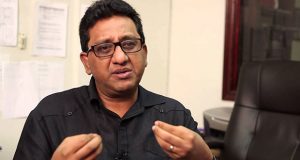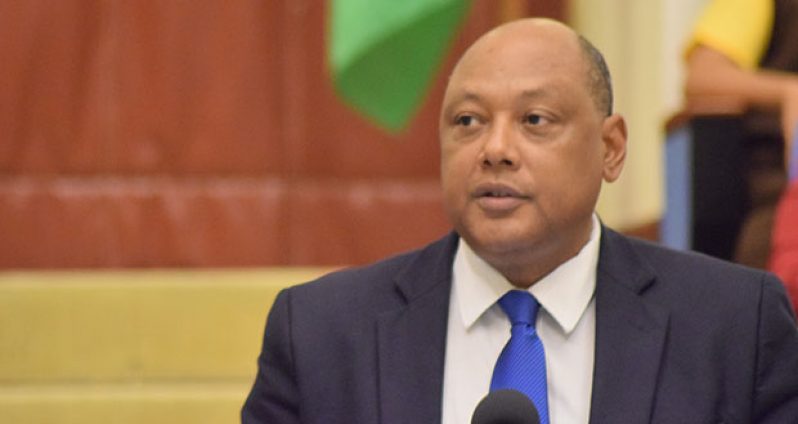By Navendra Seoraj
MINISTER of Natural Resources, Raphael Trotman told the National Assembly Thursday night that the Walter Rodney Commission of Inquiry (CoI) was a farce and a waste of taxpayers’ money.
“Guyanese are no closer to knowing the truth about the death of Dr Walter Rodney,” he countered during a heated debate over a Motion calling on it to adopt the findings of the Rodney CoI.
The Motion was tabled by the parliamentary Opposition, in the hope that the present administration would put measures in place to implement the 11 recommendations detailed in the report.
The Rodney CoI was launched by the former People’s Progressive Party/Civic (PPP/C) administration in the hope of bringing closure to the “painful loss” suffered by the Rodney family when the world-renowned scholar, historian and political activist was assassinated when a booby-trapped device detonated in his lap near the Camp Street jail on the night of June 13, 1980.
FINDING RECONCILIATION
“In trying to find reconciliation,” Trotman said, “we must ask ourselves where it is that we went wrong in the CoI… At the end of it all, we are left without the answer to the question which this commission was supposed to deliver.”

What this means, in essence, he said, is that 36 years of waiting and hoping that the truth will be revealed has all been in vain. “This is truly painful,” he said. “The report has failed miserably!”
But what is even more painful, he said, is the fact that the very commissioners who conducted the inquiry have admitted that the report lacked thoroughness and completeness. It’s all there in the report, he said, where they highlighted that “there were at least 10 witnesses who were still to be heard.”
Warming to the topic, Trotman said that what the commissioners did was that instead of submitting their findings within the allotted four months of its conclusion, they asked for an extra 20 months to compile their report.
And even after its release, he said, the report strayed from the initial Terms of Reference in that the commissioners sought to highlight Guyana’s economic situation at the time of Rodney’s unfortunate demise, which they did at Pages 50 and 51 of the report.
A QUESTION OF BIAS
Needless to say, this line of argument did not go down well with some segments of the House, but the minister stood his ground and stoutly defended his position, saying that to his mind those sections of the report raised the question of bias, and whether the report was created before the CoI was even completed.
“There was no attempt to open doors and investigate… even given the fact that you have an administration which was involved in the raising of arms,” Trotman contended, going on to accuse the commission of being way off and even outside its boundaries, added to which there was no supporting evidence for their findings.
Taking him up at this point of the debate, former Attorney-General Anil Nandlall sought to remind his learned colleague that a CoI is not a court of law, where supporting evidence is a key requirement.
“This is an inquiry, and not a piece of litigation between parties,” Nandlall said, adding that the purpose of an inquiry is not to try or charge anyone, but about presenting facts.
But Trotman again held his ground, saying that as far as he was concerned, justice was not done in this instance, because apart from the lack of supporting evidence, a convict, Allan Gates was allowed to testify before the commission.
“We do not accept the evidence of someone whose credibility cannot be accepted,” he said.
Again, Nandlall sought to challenge him, saying that 90 per cent of the witnesses who testified in the Prison CoI were felons.
According to the Rodney report, “The commission was generously well supported by volunteer witnesses who had relevant and interesting evidence to give. Some came from overseas to testify as well.”



.jpg)









